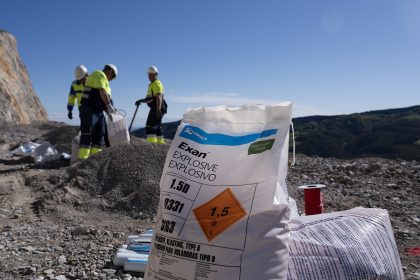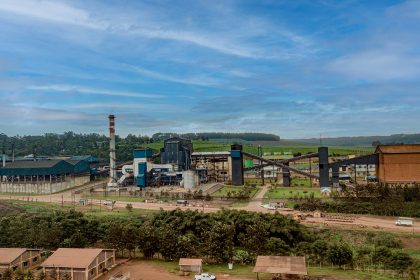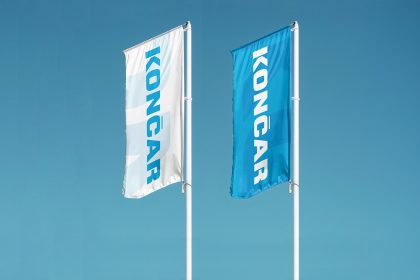
“The mobile money industry is fast-evolving against a backdrop of increasing internet access and smartphone adoption, and now more than ever, mobile’s unparalleled global scale provides a tremendous opportunity to reach the 1.7 billion people who remain financially excluded.”
These are the words of Mats Granryd, Director General of GSMA, the association which represents hundreds of the world’s largest companies operating in the mobile industry.
He speaks in response to the recent publication of the organisation’s State of the Industry Report for 2018, which found that $1.3 billion of transactions were processed daily by mobile money solutions.
In Africa specifically, there were other significant findings, not least that reforms in the continent’s three most populated countries (Egypt, Ethiopia and Nigeria) are expected to spark a wave of adoption which could see more than 110 million mobile money accounts being created in the next five years.
For payment giants like Visa, this represents an enormous opportunity and is tremendous cause for optimism.
“The variety of options available at the moment is just extraordinary,” says Aida Diarra, the company’s Senior Vice President and Sub-Saharan Africa Group Country Manager. “From basic card payments to risk management tools and new digital payment formats, there are many ways we can customise and tailor a solution for Africa.
“Add in the fact just 10 percent of what is spent here today is digital, and there is a huge opportunity for further growth.
“While the use of cash is also growing, what is fascinating for me is the role that mobile operators and fintechs are playing, especially in Sub-Saharan Africa. There is still a place for traditional banking methods, of course, but we need to embrace digital across not just payments but the whole financial spectrum. How do we open up access? That is our challenge and opportunity.”
Diarra served a significant stint at Western Union before making the move to Visa in November 2018, a journey she says has been one of discovery to date.
“For me this is about a bigger purpose and improving people’s lives by helping them to access financial services,” she says, “whether that means enabling them to set up their own business or simply visit a doctor.
“When the opening at Visa came along, I looked at the richness of its portfolio in the payments space and how this can make a broad difference in the region. There is a real willingness to invest in the continent, clients and ultimately the end consumer.”
Advancing access
Visa has already rolled out substantive mobile wallet-based solutions across several African nations, including Nigeria, Kenya, Ghana and Tanzania, opening up ecommerce opportunities for businesses and consumers.
In Rwanda, the company has joined forces with the Clinton Development Initiative to implement a digital payments pilot, empowering local farmers to grow their businesses securely.
Not only is this removing the need to handle large amounts of cash, it also opens up small-scale farming enterprises to working with large agribusinesses and increases the likelihood of timely payments for their harvests.
Other partnerships, especially with fintech companies, are a key priority for Visa and Diarra.
“Fintechs are extremely agile and knowledgeable and can reach the smaller merchants and individual consumers, and we are looking to embed these smaller companies into an ecosystem by simplifying the onboarding process,” she explains.
Diarra cites two recent examples of collaboration, the first being with Nigerian firm Paystack.
“Paystack builds technology which allows companies to connect to different payment options and platforms, from card-based transactions to mobile money transfers,” she says. “The company at the moment is mainly focussed on its home market but has ambitious plans to expand into other countries like Ghana, Kenya and Benin, among others.”
The second case study comes from Tanzania, where Visa is working closely with mobile wallet expert Halotel, the fastest growing mobile network operator in the country and into only its fourth year in operation.
In just three years, Halotel has gained four million subscribers with a million mobile money accounts, which are now Visa-enabled. This partnership has also enabled 40,000 retailers to process Visa payments, a key part of the ecosystem Diarra was previously referring to.
Another enabler of this ecosystem’s flourishment is education.
“This is vital, both in terms of consumers and merchants,” Diarra adds. “The more digital onboarding we can facilitate, the more lives will be made easier, and this requires education and legislation from government to formalise.
“For example, we signed an MoU with the Ivory Coast government in March 2019, a key pillar of which being the need to drive education of the country’s population in finance. This is one of many examples of Visa contributing towards knowledge sharing across the region.”
This growing activity, both in an educational and practical sense, leaves Diarra confident about digital finance solutions and the multiplier effect this can have across Africa.
She concludes: “I am optimistic because of the sheer size of the opportunity and rate of adoption we are seeing. You can only be excited about the work lying ahead of us in Sub-Saharan Africa, and when I see the benefit of onboarding consumers into the digital ecosystem, I can’t help but feel that the sky is the limit.
“This is only the beginning.”
































